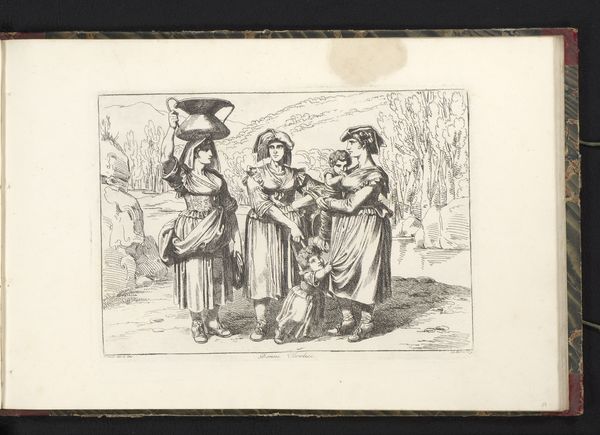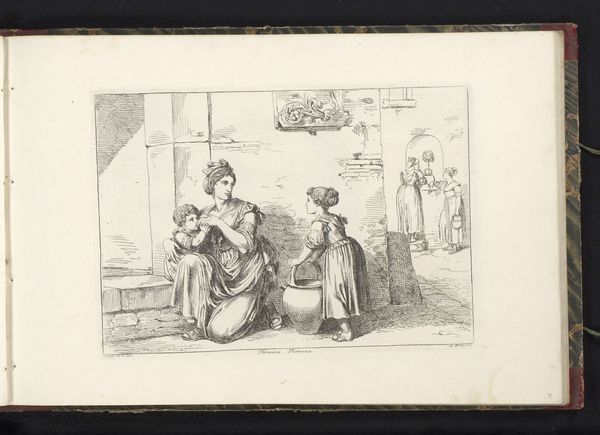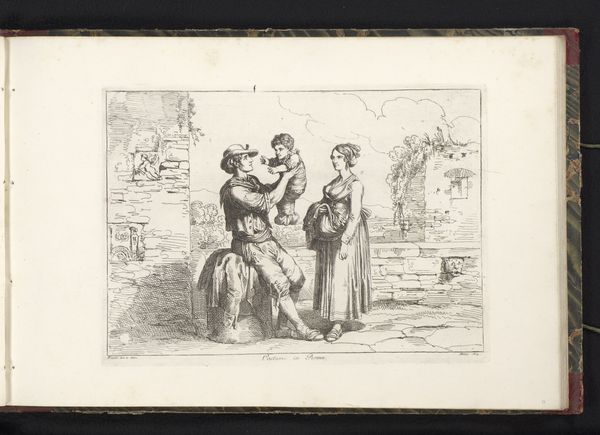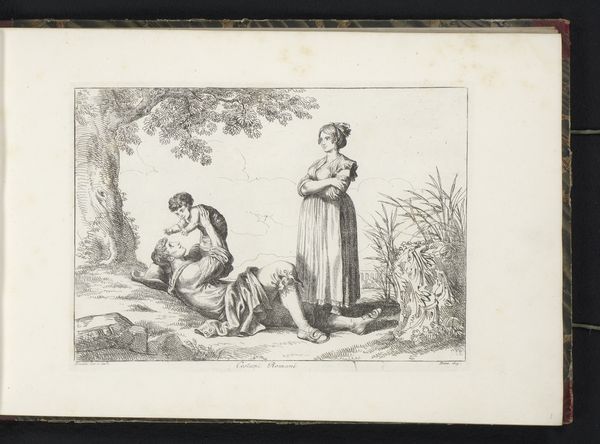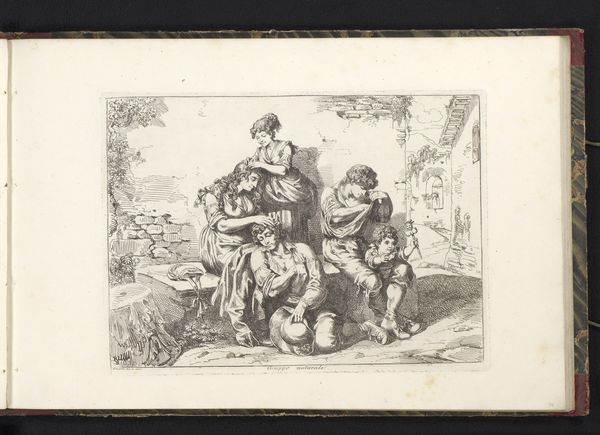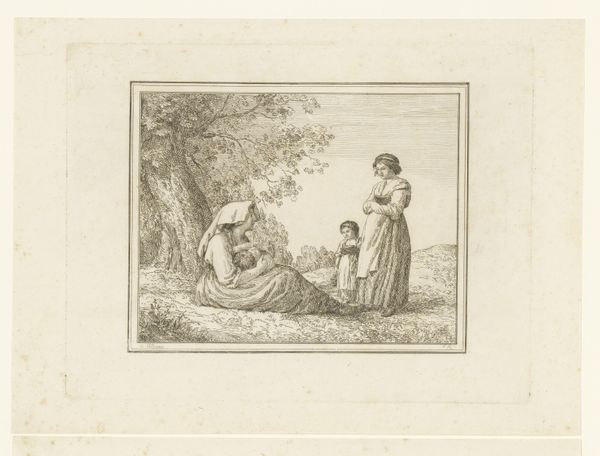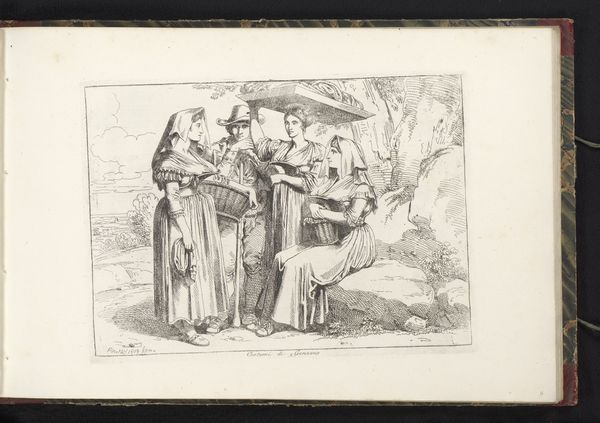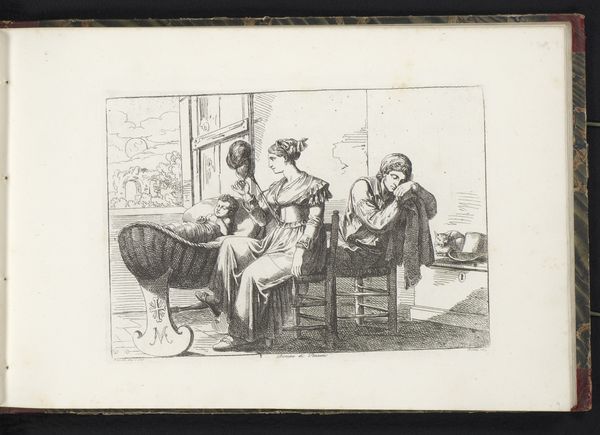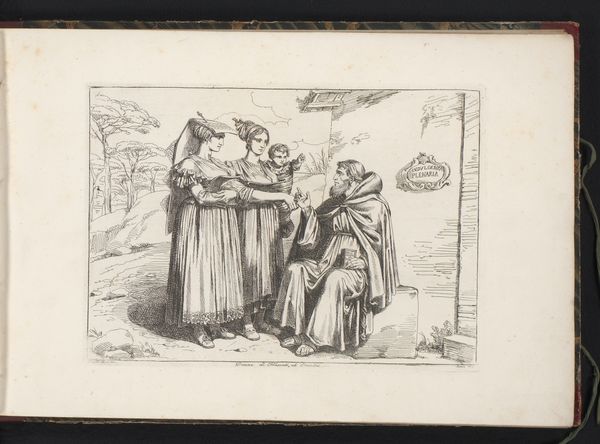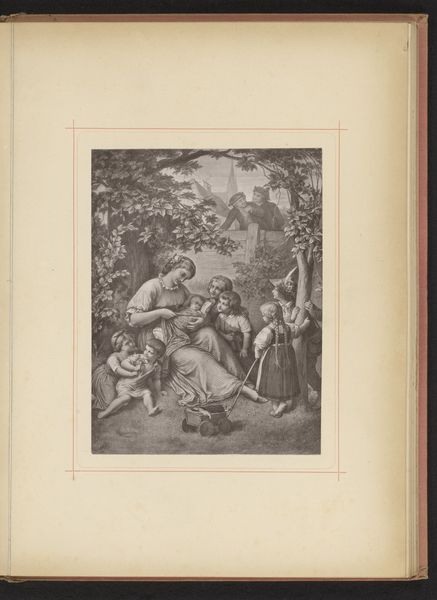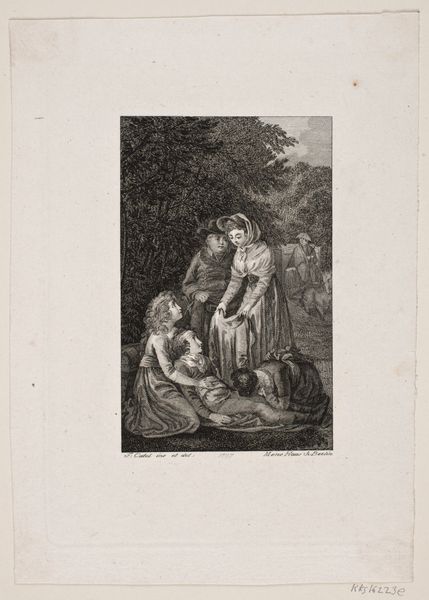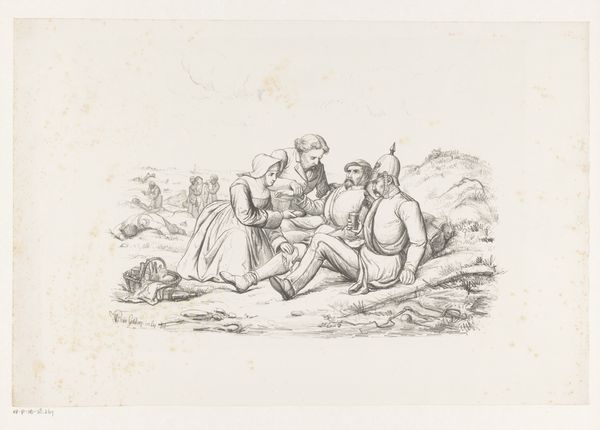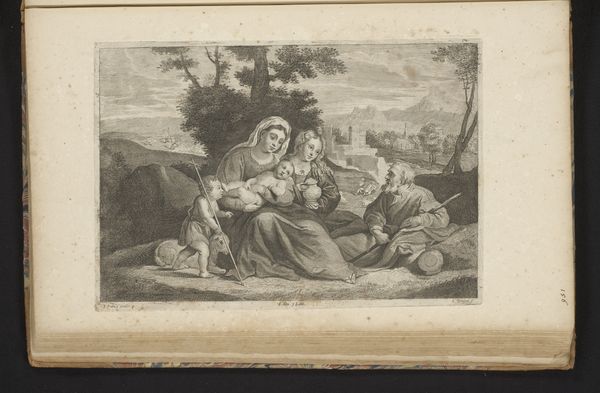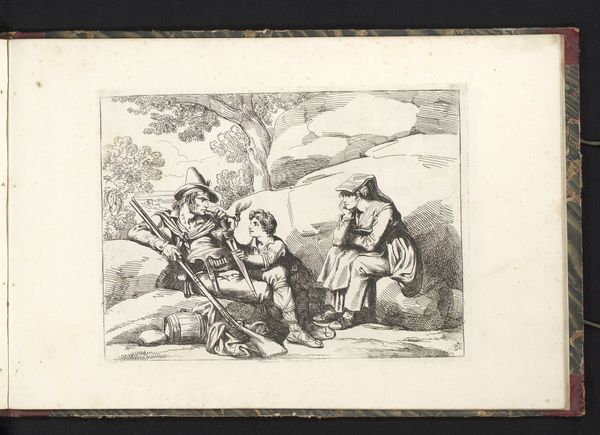
drawing, ink, pen
#
portrait
#
drawing
#
aged paper
#
toned paper
#
narrative-art
#
sketch book
#
figuration
#
personal sketchbook
#
ink
#
romanticism
#
pen-ink sketch
#
pen and pencil
#
sketchbook drawing
#
pen
#
watercolour illustration
#
genre-painting
#
storyboard and sketchbook work
#
sketchbook art
Dimensions: height 197 mm, width 278 mm
Copyright: Rijks Museum: Open Domain
Curator: This drawing is titled "Drie vrouwen en een kind uit Castel Madama," or "Three women and a child from Castel Madama," by Bartolomeo Pinelli, made in 1819. Editor: It has a wistful quality. It’s a modest scene rendered in precise strokes of pen and ink, and there is something timeless about these figures. Curator: The timelessness is interesting. It resonates on several levels. On the surface, we are seeing a genre painting capturing daily life. But the romanticised style of Pinelli also reaches back, alluding to archetypes. Note how the garb references folk traditions. Each item of clothing subtly conveys volumes. Editor: The very conscious and meticulous draftsmanship itself must also be appreciated. See the textured effect achieved from applying ink to toned paper; it is quite charming how the aged paper peeks through the inking, emphasizing its origins as a storyboard in a personal sketchbook. Curator: Indeed, Pinelli understood the weight of representing identity through clothes. Observe how each element – the headdress, the sleeve detail, the very cut of the cloth—speaks to communal and individual values. Costume is a symbol, declaring a person’s place within the group and relative to others. Editor: And if we zoom in, there's even evidence of revisions! It is truly a document showcasing process. You notice, too, how Pinelli positions the figures in front of the mountainous landscape— it feels as though the very bedrock of Italian society supports them. Curator: The background figures fade into the distance— a reminder of our place within the flow of time. There's a melancholy air of remembering here. The simple rural lives stand for cultural endurance. Editor: Looking closer has opened up another level for me; what first seemed merely folksy I now recognise as considered commentary through clothing, materiality, and labor! Curator: For me, I recognize how each small detail speaks to Pinelli’s grand vision of the continuous Italian cultural memory.
Comments
No comments
Be the first to comment and join the conversation on the ultimate creative platform.
